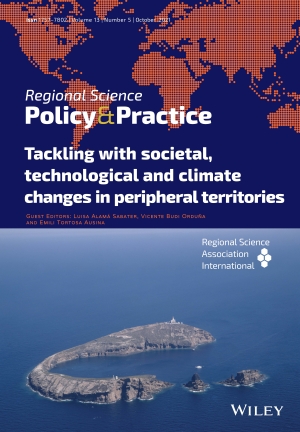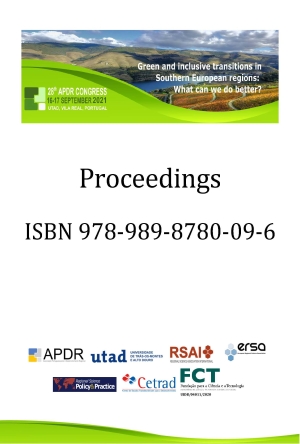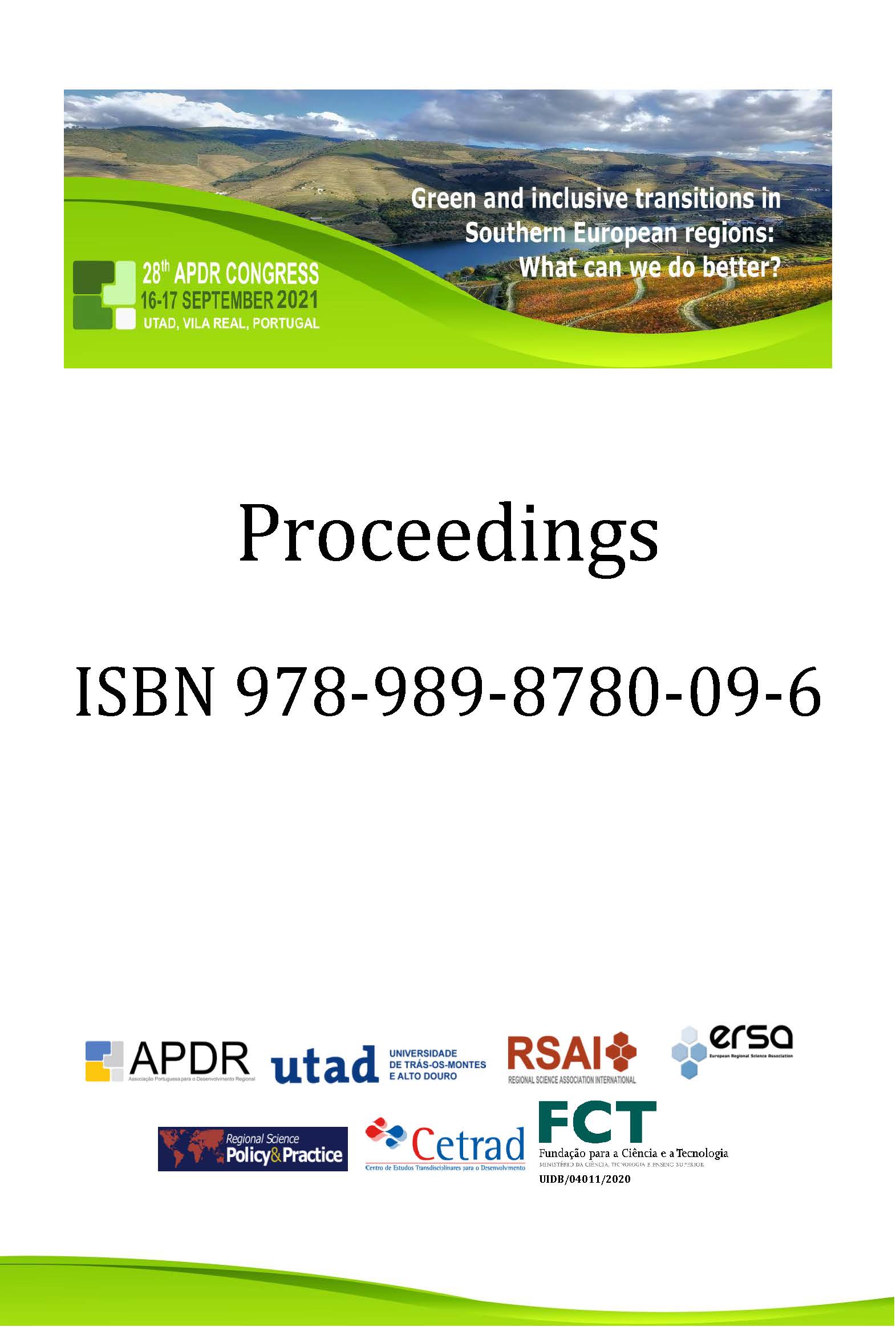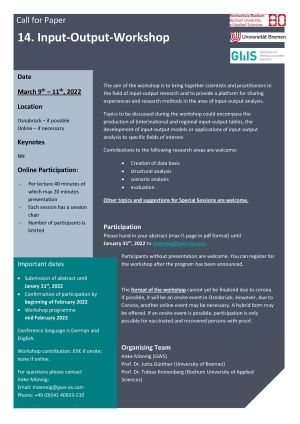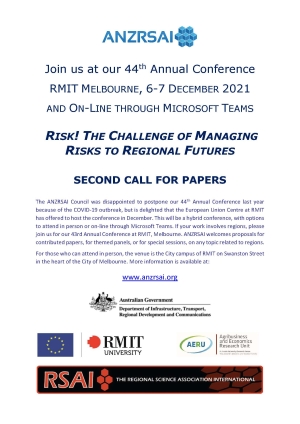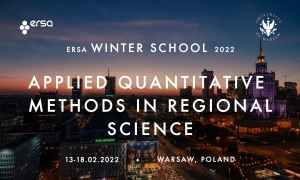Archives
Elisabete Martins
Indian Section | Nurturing Young Talent Workshop and Anual Conference, December 8-10, 2021
Nurturing Young Talent Workshop
supported by RSA International on COMPUTATIONAL SOCIAL SCIENCES
Will be held on DECEMBER 08, 2021 @ 09:00– 17:30 HRS (IST)
There is no registration fee.
Workshop link will be shared with all registered participants.
Applicants for the workshop kindly fill up the following form.
https://forms.gle/CwVSxELLrrkRwBtN9
registered delegates are also requested to submit this form to join the workshop
52nd Annual Conference of Regional Science Association, India | Resurgence of Regions
Co-hosted by Institute of Development Studies, Kolkata in Collaboration with Regional Science Policy and Practice
Important Dates
Abstract Submission: 22nd November 2021
Intimation about Abstract Acceptance: 25th November 2021
Registration: 28th November 2021
Events
RSAI NYT Workshop: 08th December 2021
Main Conference: 09th and 10th December 2021
Registration
To register for the conference kindly fill-up the following form: https://forms.gle/DZs66yTYvDKyZYTT8
Please pay the registration fees before filling up the registration form and uploading the payment receipt.
Registration Fees
Online Participants:
Members of RSA India: INR 800/-
Non-members: INR 1000/-
More information at: https://rsai.org.in/
Assoc. Dean for Diversity and Inclusion at Cornell’s Department of City and Regional Planning
Cornell’s Department of City and Regional Planning is hiring an Assoc. Dean for Diversity and Inclusion
https://jobs.acsp.org/job/aap-associate-dean-for-diversity-and-inclusion/58942593/
Two tenure track Assistant Professor (or early stage Associate Professor) at Cornell’s Department of City and Regional Planning
Cornell’s Department of City and Regional Planning is pleased to announce two tenure track Assistant Professor (or early stage Associate Professor) positions at Cornell. One position is part of a Cohort hire on Social Justice and Equity, and the other position is a collaboration with humanities to address Planning in the Digital Realm.
The full job descriptions are found at the links below.
- Social Justice and Equity - Cohort https://academicjobsonline.org/ajo/jobs/20244
- Planning and the Digital Realm - CIVIC https://academicjobsonline.org/ajo/jobs/20253
If a candidate wishes to be considered for both jobs, they must apply separately for each. Review of applications will begin on Nov 22, 2021.
Call for Papers | Workshop of NECTAR Cluster 4, Université Gustave Eiffel, Marne-la-Vallée, France, March 17-18 2022
Please find enclosed the call for papers to a workshop of NECTAR Cluster 4 which will be held at Université Gustave Eiffel, Marne-la-Vallée, France, March 17-18 2022. The workshop is about "Teleworking, commuting and the housing market in the post COVID19 era".
Also note that the meeting can be combined with an UERA Thematic Working Group on Accessibility that is planned the day before the event, March 16, on the quarter-hour city, also in Marne-la-Vallée.
The Annals of Regional Science, Volume 67, Issue 3 - New Issue Alert
|
|
||||
|
|
|||
|
|
|
|
|||
|
|
|
|||
|
|
|
|||
|
|
|
|||
|
|
|
|
|||
|
|
|
|||
|
|
|
|||
|
|
|
|
|||
|
|
|
|||
|
|
|
|||||
The latest issue of Regional Science Policy & Practice are available! Volume 13, Issue 5, October 2021
|
|
Regional Science Policy & Practice Volume 13, Issue 5 Special Issue:Tackling with societal, technological and climate changes in peripheral territories 1403-1721
October 2021
Luisa Alamá Sabater, Vicente Budi Orduña, Emili Tortosa Ausina
|
ISSUE INFORMATION
Issue Information
TACKLING WITH SOCIETAL, TECHNOLOGICAL AND CLIMATE CHANGES IN PERIPHERAL TERRITORIES – INTRODUCTI0N
Tackling with societal, technological, and climate changes in peripheral territories
Luisa Alamá-Sabater, Vicente Budi, Emili Tortosa-Ausina
TACKLING WITH SOCIETAL, TECHNOLOGICAL AND CLIMATE CHANGES IN PERIPHERAL TERRITORIES – ORIGINAL ARTICLES
María Pilar García-Alcober, Ana Isabel Mateos Ansótegui, María Teresa Pastor Gosálbez
Segregation of high-skilled workers and the productivity of cities
Rodrigo Diaz, Nicolas Garrido, Miguel Vargas
Public expenditure on disability (PED) in Europe: An efficiency analysis
Financial inclusion and exclusion across Mexican municipalities
Agencies, scales and times of path creation: The case of IoT in Toulouse
ORIGINAL ARTICLES
BOOK REVIEW
Portuguese Section: PROCEEDINGS NOW AVAILABLE! 28th APDR Congress, September 2021, UTAD, Portugal
28th APDR Congress
September 2021, UTAD, Vila Real
Green and inclusive transitions in Southern European regions: What can we do better?
ISBN: 978-989-8780-09-6
Format: Online
DOWNLOAD - http://apdr.pt/data/documents/ATAScongress2021.pdf
Call for Paper | Input-Output Workshop, March 9-11, 2022
Dear IO Community,
We would like to invite you to participate in the Call for Paper for next year's I-O Workshop. The workshop will be held from March 9-11, 2022.
The format is still uncertain at this stage. We favor a face-to-face event in Osnabrück, possibly supplemented by a hybrid format. However, a purely online event cannot be ruled out entirely at the moment. We ask for your understanding that we cannot commit ourselves here yet.
Attached to the email is the Call for Paper in English and German. All further information can be found there.
If you have any questions, please feel free to contact me.
Best regards.
Anke Mönnig
On behalf of the entire organization team
ANZRSAI Conference Second Call for Papers
The Second Call for Papers for the ANZRSAI 2021 conference has been published on the ANZRSAI website.
The conference will be a hybrid conference, Monday 6th and Tuesday 7th December 2021.
Registered participants can join us in person at the City Campus of RMIT in Swanston Street, Melbourne, or can join us on-line through Microsoft Teams.
The Second Call for Papers can be downloaded here. The deadline for submissions is 31 October 2021.
Call for Applications: ERSA Winter School 2022 - Extended deadline
 
ERSA Winter School 2022 Call for Applications Extended deadline until 31 October 2021Target: Smart Young Researchers willing to learn more on #dataScience #spatial #regionalscience and receive precious feedback on their research: Don't miss this extra chance! |
|
|
|
|
|
|
About Us
The Regional Science Association International (RSAI), founded in 1954, is an international community of scholars interested in the regional impacts of national or global processes of economic and social change.



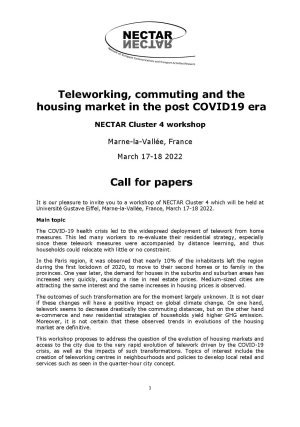
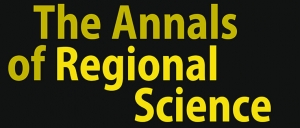
 The Annals of Regional Science.
The Annals of Regional Science. 